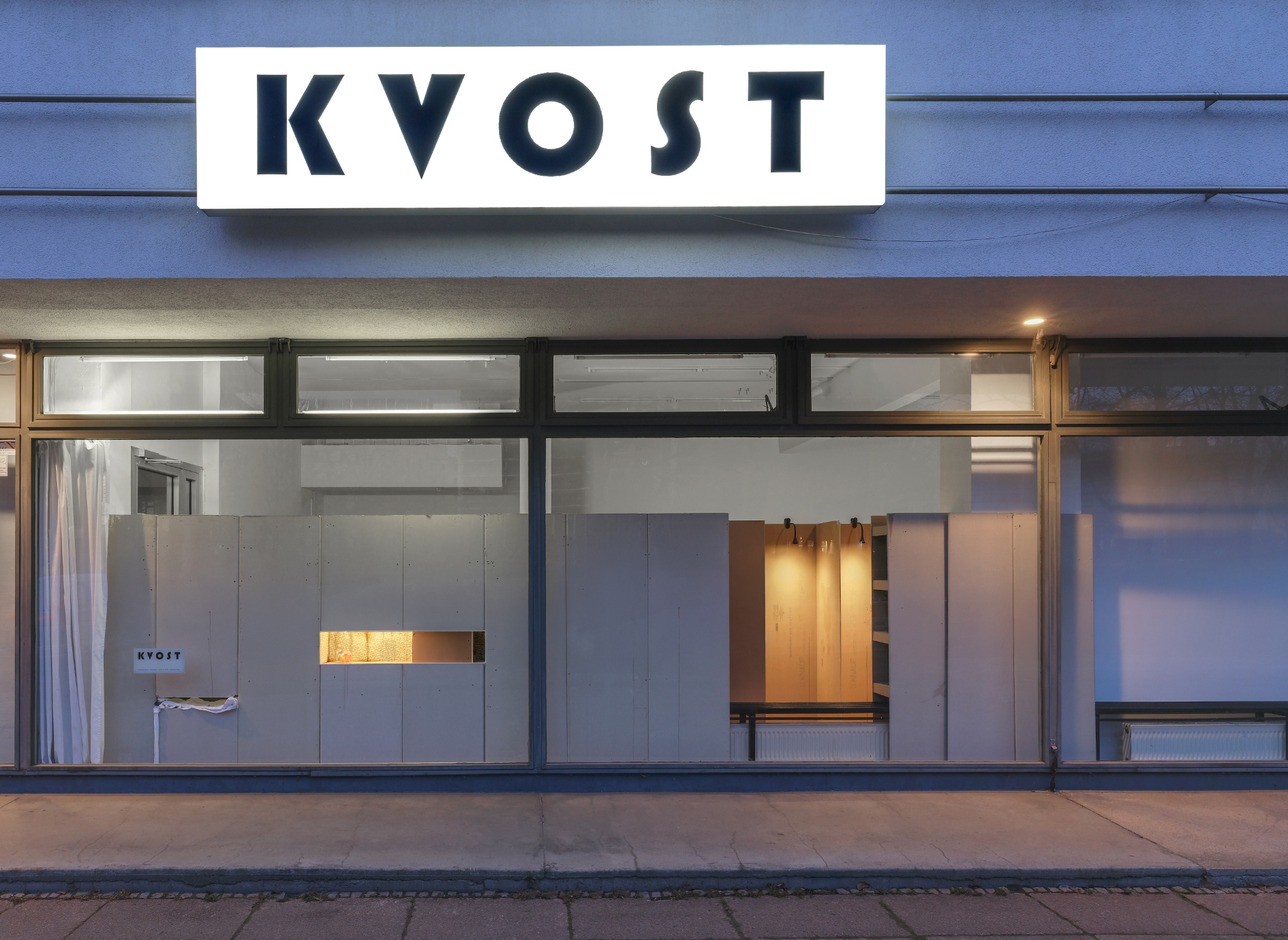For the KVOST SchauFenster (window display), Patryk Kujawa presents a new installation that evokes both a shop window and a fitting room. Using salvaged construction materials and healing products, he creates fragile, raw spaces in which memories intertwine with sensual imagination. The work draws from autobiographical perspectives on sexuality and social background, moving within the tension between shame and the desire to reveal it.
Kujawa works with used drywall panels—so-called „Ein-Mann-Platten“ (one-man panels)—which he collects from people who no longer need them. The workwear garments come from his family archive or private donations and bear individual traces of use, labor, and bodily contact. These materials are complemented by paper and cardboard sculptures reminiscent of architectural models, lending the installation a provisional, model-like character.
Artist Statement
The construction site—for many a symbol of amplified, even toxic masculinity—is, for me, rather a place of exhaustion and fragility, where hidden fears, frustrations, and social and physical pressures accumulate. I come from a Polish working-class family in Szczecin; my father was a construction worker. His world—like that of many others—was shaped by physical depletion, quietly borne shame, and the constant effort to endure. Their dreams were tied to the painful acceptance of subordination.
This experience shapes my view—also as a queer person for whom the construction site is a place of vulnerability, threat, and desire. Equally ambivalent is the figure of the construction worker: on one hand, the sensitive father permeated by fear, forced to embody a role he could barely carry; on the other, the object of queer fantasy—physical, raw, and soft at once, desired through muscle and clothing alike.
Moisture, ointments, sweat, tears—they seep into the drywall with which I construct my spaces. The used drywall panels I collect, intended for insulating, hiding, and covering, come from failed building projects: remains of unrealized plans, abandoned endeavors, sudden ruptures (a breakup, a financial shift, a death). They reveal traces and fragments of possibilities that were never fulfilled.
